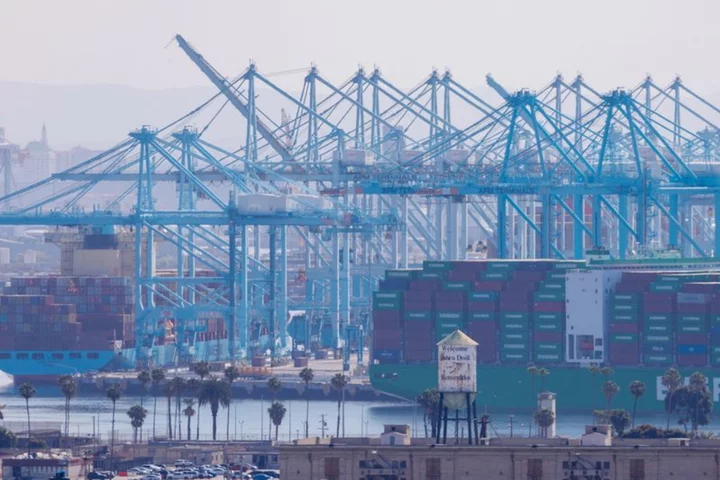WASHINGTON The U.S. economy maintained a fairly strong pace of growth in the second quarter, the government confirmed on Thursday, and appears to have gathered momentum this quarter amid a resilient labor market.
Gross domestic product increased at an unrevised 2.1% annualized rate last quarter, the Commerce Department said in its third estimate of GDP for the April-June period on Thursday. Economists polled by Reuters had expected GDP for the second quarter would be unrevised.
Growth for the first quarter was revised up to a 2.2% rate from the previously reported 2.0% pace.
The government also revised GDP data from 2017 to incorporate new source information and made some statistical improvements such as the treatment of regulated investment companies and real estate investment trusts.
GDP was revised down in each of the first quarters of 2020, 2021 and 2022 mostly due to downgrades to consumer spending growth. But the Bureau of Economic Analysis (BEA), the agency that constructs the GDP report, said there was no evidence that residual seasonality, which plagued the GDP data several years ago, was an issue.
The government also introduced new price measures, the personal consumption expenditures (PCE) price index excluding food, energy and housing, and PCE services excluding energy and housing, or the so-called super core inflation.
Federal Reserve officials are focused on the super core price measure as they try to gauge progress in their fight against inflation. Since March 2022, the U.S. central bank has raised its benchmark overnight interest rate by 525 basis points to the current 5.25%-5.50% range.
The economy is being underpinned by a resilient labor market, which is driving strong wage gains. Growth estimates for the July-September quarter are currently as high as a 4.9% rate.
But a looming government shutdown amid bitter infighting among Republicans in the U.S. House of Representatives over spending could sap momentum in the fourth quarter.
Hundreds of thousands of federal workers will be furloughed and a wide range of services, from financial oversight to medical research, will be suspended if Congress does not provide funding for the new fiscal year that starts Oct. 1.
Also casting a shadow over the economy is an ongoing strike by the United Auto Workers union against General Motors, Stellantis and Ford Motor, which is expected to depress motor vehicle production and raise automobile prices. The strike, which started almost two weeks ago, is already having ripple effects on the supply chains.
The labor market has continued to hold its own so far. A second report from the Labor Department on Thursday showed initial claims for state unemployment benefits rose 2,000 to a seasonally adjusted 204,000 for the week ended Sept. 23. Economists had forecast 215,000 claims for the latest week.
Claims have been in the lower end of their 194,000-265,000 range this year. The number of people receiving benefits after an initial week of aid, a proxy for hiring, increased 12,000 to 1.670 million during the week ending Sept. 16, the claims report showed.
The so-called continuing claims covered the period during which the government surveyed households for September's unemployment rate. Continuing claims were little changed between the August and September survey weeks. The unemployment rate increased to 3.8% in August from 3.5% in July.
(Reporting by Lucia Mutikani; Editing by Paul Simao)

